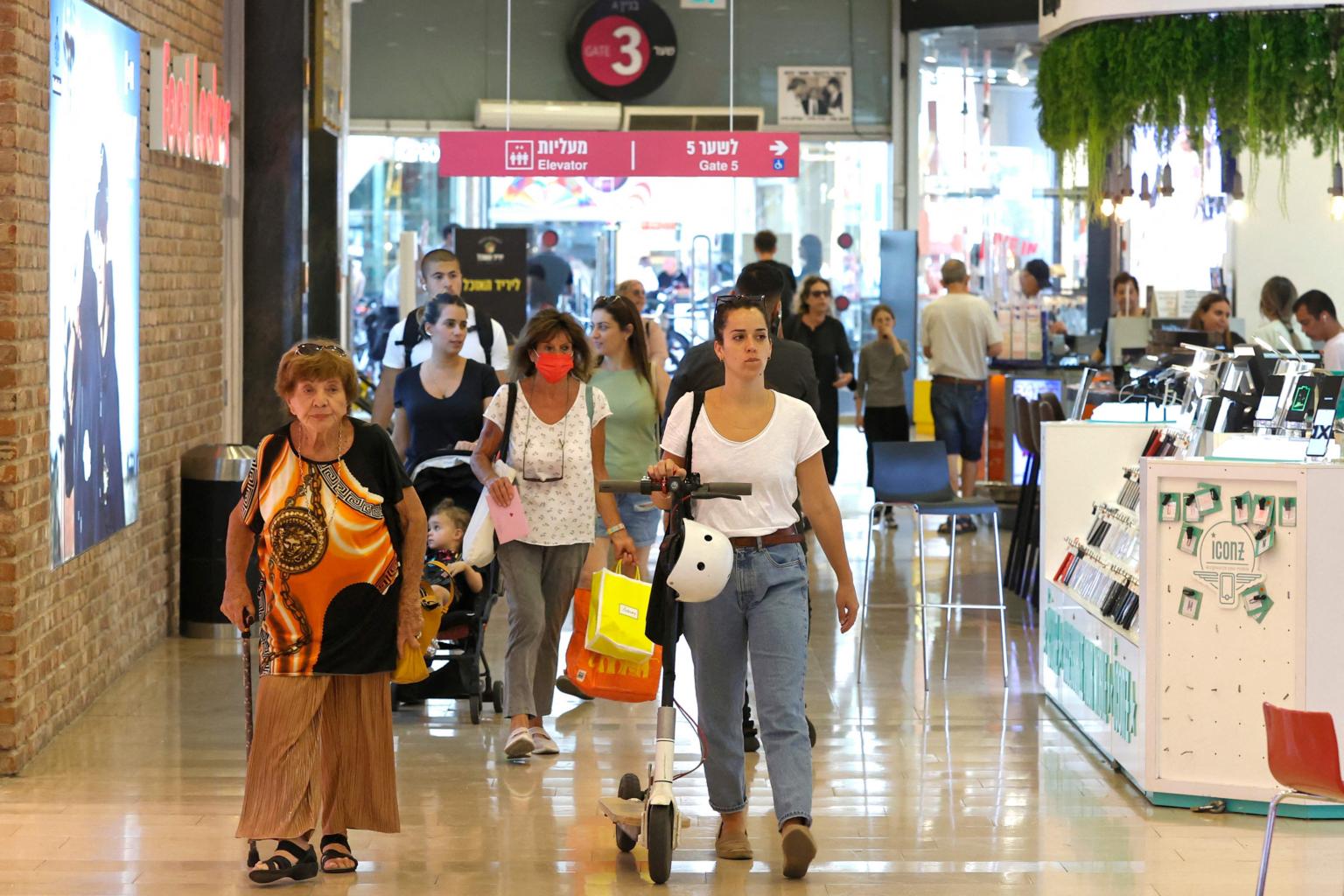Israel requires masks indoors again as Delta variant drives up cases
Sign up now: Get ST's newsletters delivered to your inbox

Despite the new outbreak, Israel's current death rate remains close to zero.
PHOTO: AFP
JERUSALEM (REUTERS, NYTIMES) - Israel told its citizens on Friday (June 25) they must again wear masks indoors, 10 days after being allowed to ditch them, amid a sustained surge in Covid-19 infections attributed to the highly contagious Delta variant.
The mask requirement had been one of only a few social curbs remaining as Israel's rapid vaccination drive kept cases down.
But infections more than quadrupled this week to 138 after outbreaks attributed to the Delta variant at two schools, prompting officials to tighten some restrictions again and urge parents to have children aged between 12 and 15 vaccinated.
The health ministry reimposed the mask requirement for all indoor settings except the home, and said it was also recommending masks be worn at large outdoor gatherings, specifically mentioning gay pride events taking place around Israel this weekend.
Some 55 per cent of Israel's 9.3 million population have received both doses of the Pfizer-BioNTech vaccine.
Eligibility was extended to 12- to 15-year-olds last month, but take-up in that age group has been low.
In April, Israel's pandemic response coordinator, Dr Nachman Ash, said Israel could achieve "herd immunity" when 75 per cent of its population were either vaccinated or naturally immune after having contracted Covid-19.
But on Thursday, allowing for the higher contagiousness of the Delta variant - first detected in India - Dr Ash put that figure at "at least 80 per cent".
Currently, around 65 per cent of Israel's population have been vaccinated or have recovered from Covid-19, the Health Ministry said.
Israel has been a trailblazer in the post-pandemic world, largely returning to normal in May following one of the world's fastest Covid-19 vaccination drives.
Despite the new outbreak, the country's current death rate remains close to zero, and only 26 of 729 active coronavirus patients were hospitalised, according to data released by the Health Ministry. And the overall daily caseload remains far from the country's peak in mid-January, when the average hit more than 8,000 daily cases.
Some Israeli officials and health experts have attributed the outbreaks to the Delta variant, and point to international travellers as a potential source of the outbreaks.
According to Ms Anat Danieli, a Health Ministry spokesman, the Delta variant had been identified in 180 samples as at last Sunday (June 20). But it was unclear how many of the new cases involved the variant, as the testing can take up to 10 days.
Since last Saturday, the country's rolling seven-day average of new cases has grown from less than 25 to more than 72, according to the Our World in Data project at Oxford University.
Before the recent outbreak, the daily caseload had fallen close to zero. About 57 per cent of the country's population has already been given two shots of Covid-19 vaccine.
To deal with the sudden outbreak, Prime Minister Naftali Bennett reinstated a ministerial crisis committee, known as the coronavirus Cabinet. On Wednesday, Israel's Tourism Ministry said it would postpone its resumption of issuing individual tourist visas from July 1 to Aug 1.
Israeli officials fear that the country may have eased too many of its anti-virus restrictions too quickly.


